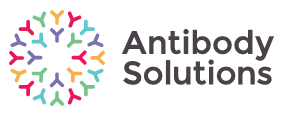Antibody Solutions Secures Grant for Challenging Diagnostic Initiative
Antibody Solutions Secures Grant for Challenging Diagnostic Initiative
Project will seek to generate more sensitive antibodies to improve the quality of diagnostic tests for malaria
SANTA CLARA, Calif.--(BUSINESS WIRE)--Antibody Solutions, a leading provider of fit-for-purpose antibody discovery services, announced today that it received a 15-month grant for nearly $1.2 million from the Bill & Melinda Gates Foundation to develop reagents for highly-specified rapid diagnostic tests (RDT) to detect malaria.
“One challenge with some reagents in current RDTs for malaria is their lack of specificity, sensitivity, and suitability. The end result is that those RDTs are unable to differentiate between different strains of malaria,” explained John Kenney, PhD, co-founder and president of Antibody Solutions. “When you’re marshaling limited resources to respond quickly to a deadly infectious disease, the more accurate your diagnostic tools, the better your response. ”
Antibody Solutions has already begun work to identify these new antibody reagents by harnessing Cellestive, its antibody discovery platform, that includes multiple discovery pathways such as hybridoma library, primary B-cell screening, and guided next-generation sequencing (NGS). Such a comprehensive approach is typically only selected by drug developers pursuing therapeutic candidates; budget and timeline constraints put the pursuit of multiple simultaneous discovery paths out of reach for most diagnostic reagent discovery projects. With support from the Gates Foundation, the Antibody Solutions team can avoid that hurdle and focus on discovering better reagents to the target of interest (plasmodium lactate dehydrogenase protein, or pLDH) by approaching it as they would a traditional therapeutic target.
Such a comprehensive approach is typically only selected by drug developers pursuing therapeutic candidates; budget and timeline constraints put the pursuit of multiple simultaneous discovery paths out of reach for most diagnostic reagent discovery projects. With support from the Gates Foundation, the Antibody Solutions team can avoid that hurdle and focus on discovering better reagents to the target of interest (plasmodium lactate dehydrogenase protein, or pLDH) by approaching it as they would a traditional therapeutic target.
“This is extremely challenging science, overcoming high sequence homology and conservation of LDH protein from different strains of malaria,” Kenney added. “The ability to generate high-affinity antibodies that are specific to each form of malarial LDH is not guaranteed. Ultimately, we are at the mercy of biology and natural immune responses. But, we can mitigate this risk by applying strategies that we’ve successfully employed on similar programs for therapeutic candidates. We’re both humbled and excited to take on this initiative. Its purpose is perfectly aligned with the corporate mission Antibody Solutions has been pursuing for more than twenty-five years.”
If successful, the resulting antibodies could be integrated into a lateral flow-based diagnostic test. The grant from the foundation will also allow Antibody Solutions to work with industry experts in both public health and the development and deployment of healthcare solutions in low- and middle-income (LMIC) settings, ensuring that these reagents will be widely available.
About Antibody Solutions
Antibody Solutions helps biopharmaceutical companies advance their discovery of better therapeutics and diagnostics by delivering fit-for-purpose antibodies. Using its Cellestive antibody discovery platform, the company provides comprehensive project management and technical support in a fee-for-service, pay-as-you-go business model. Antibody Solutions has served more than 800 clients, including the top 10 global pharmaceutical companies, and has earned a 96% client return rate. Founded in 1995, the company is headquartered in Santa Clara, CA and serves clients worldwide. Learn more at antibody.com.
Contacts
For Antibody Solutions:
Debra Valsamis | Business Development Manager
dvalsamis@antibody.com
(650) 938-4300 x111
